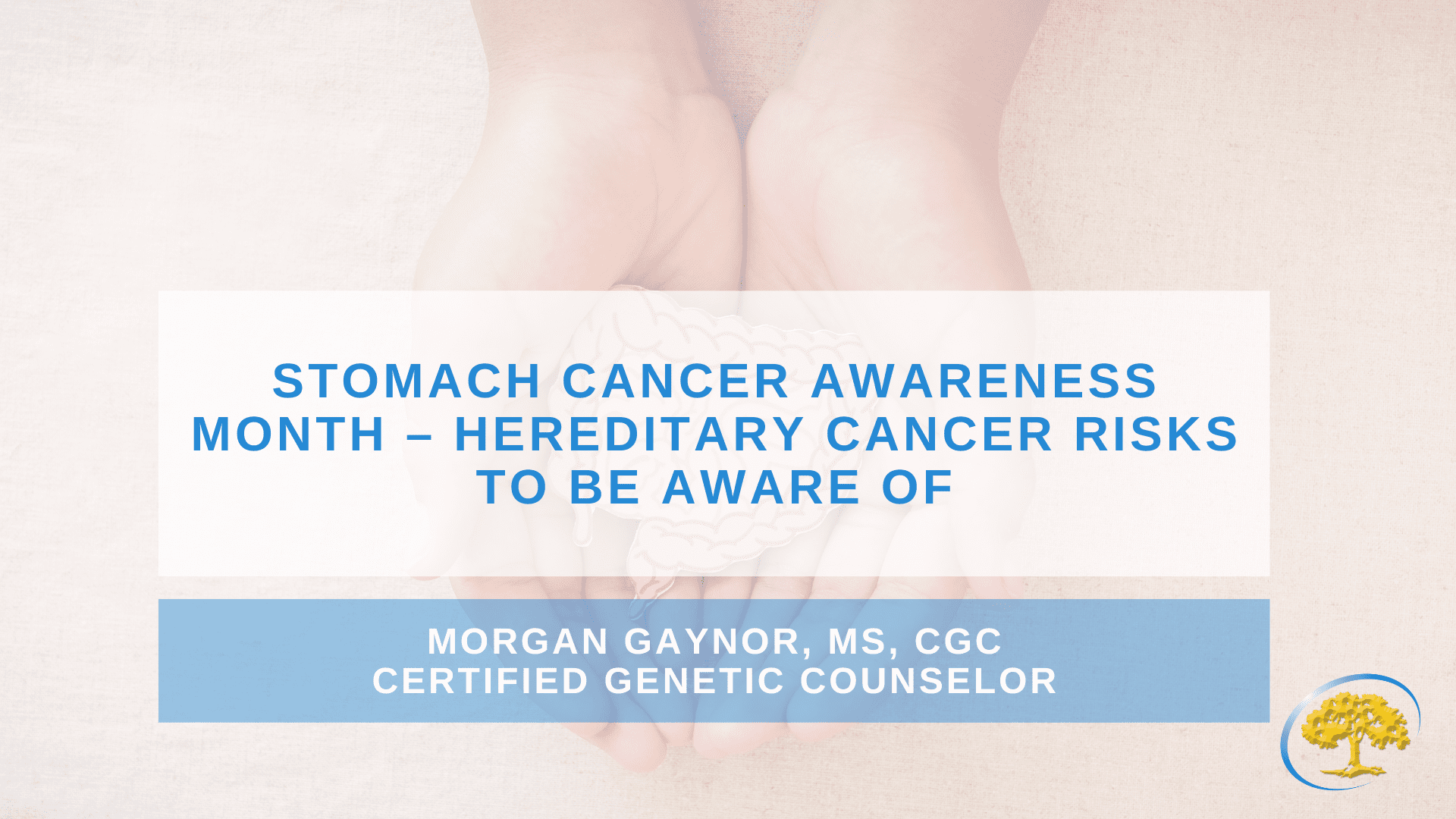
Posted 2 years ago
Stomach Cancer Awareness Month – Hereditary Cancer Risks to be Aware Of
November is stomach cancer awareness month, a time to learn about our bodies and risks that may affect our digestive health. One crucial aspect to consider is our genes. One gene of particular interest is CDH1, which is associated with an increased risk of developing hereditary diffuse gastric cancer (HDGC) and lobular breast cancer. Understanding who should undergo CDH1 genetic testing, why it is essential, the associated risks, and potential management strategies is crucial for early detection and proactive management of this genetic condition.
So, what is the CDH1 gene? The CDH1 gene is like a set of instructions in our bodies. We all have two copies of this gene, one from each of our parents. This gene helps our cells stick together and maintain tissues, such as the lining of our stomach, as well as other tissues. The gene ensures that our organs function correctly and protects certain organs from developing certain types of cancers. When individuals have certain types of mutations in genes like CDH1, it can cause that gene not to work correctly, which in turn can cause our bodies to have less protection against certain types of cancers.
Individuals with a CDH1 mutation have a 67-83% lifetime risk of developing stomach cancer, and a 27-52% risk of developing lobular breast cancer. Because these risks are so high, they present a unique clinical challenge for patients. The main recommendation for the patient is to have their stomach surgically removed between the ages of 18 and 40. Additionally, it is recommended for women with this mutation to consider the surgical removal of both breasts, also referred to as a bilateral mastectomy. These surgeries significantly reduce the risk of developing the associated cancers. Regular screenings, such as endoscopies and mammograms, can also be considered for those who are not interested in pursuing preventative surgeries. Nonetheless, pursuing genetic testing for CDH1 is critical for early detection and proactive management.
Anyone who has a personal or family history of diffuse gastric cancer and/or lobular breast cancer should consider CDH1 genetic testing. If you already have cancer, knowing about this inherited cancer risk can influence your treatment plan and can provide insights for why you may have developed cancer in the first place. It can also be advantageous for family members to know if they are at risk for inheriting the same mutation. If you have questions about hereditary diffuse gastric cancer, CDH1, or other hereditary cancer predisposition syndromes, please speak to your Ironwood provider about a referral to Ironwood’s Genetic Services Department.
Morgan Gaynor, MS, CGC
Morgan Gaynor Joined Ironwood Cancer & Research Centers In May 2022. She Earned Her B.S. In Molecular Biology And Genetics From Regis University And Earned Her M.S. In Genetic Counseling From The University Of Arizona.
During Her Time At The University Of Arizona, Morgan Completed A Two-Year Graduate Program And A Thesis On Best Practices In Counseling Low-Level Pathogenicity Results In Cancer Genetics Settings. She Completed Clinical Rotations At Prominent Healthcare Systems Such As Banner, Mayo Clinic, Color Genomics, Phoenix Children’s Hospital, And Dignity Health. During Her Time At These Institutions, She Gained Experience In Prenatal, Cancer, Cardiology, Pediatrics, And Pharmacogenomics Counseling.
Morgan Enjoys Running, Swimming, Cycling, Playing Piano, Hiking, And Spending Time With Her Family.
Please ask your Ironwood Cancer & Research Centers doctor for a referral to see our genetic counselor.

